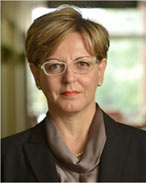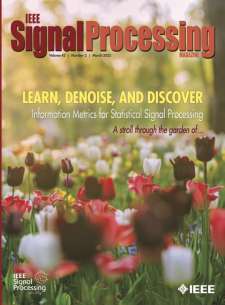Reaching Out to Members in the Middle East and India
Top Reasons to Join SPS Today!
1. IEEE Signal Processing Magazine
2. Signal Processing Digital Library*
3. Inside Signal Processing Newsletter
4. SPS Resource Center
5. Career advancement & recognition
6. Discounts on conferences and publications
7. Professional networking
8. Communities for students, young professionals, and women
9. Volunteer opportunities
10. Coming soon! PDH/CEU credits
Click here to learn more.
Reaching Out to Members in the Middle East and India

As I am writing this article, I am wrapping up a trip as IEEE Signal Processing Society (SPS) president to Doha, Qatar (9–11 January), to speak at the 2022 IEEE Spoken Language Technology (SLT) Workshop, and India (12–16 January), for technical talks and meetings with local signal processing researchers and SPS local Chapter chairs.
As I am writing this article, I am wrapping up a trip as IEEE Signal Processing Society (SPS) president to Doha, Qatar (9–11 January), to speak at the 2022 IEEE Spoken Language Technology (SLT) Workshop, and India (12–16 January), for technical talks and meetings with local signal processing researchers and SPS local Chapter chairs.
Speech and language processing deals with speech recognition, text-to-speech synthesis, spoken language understanding, speech-to-speech translation, spoken dialog management, and many other areas that are relevant to a wide range of applications. The IEEE Speech and Language Processing Technical Committee (SLTC) is a vibrant segment of the SPS, encompassing the most active and accomplished researchers and technologists in the field. The SLT Workshop is a flagship event of the SLTC, bringing together researchers from academia and industry to discuss cutting-edge developments in automatic speech recognition and understanding. The 2022 SLT was held 9–12 January 2023 and was the first speech conference held in the Middle East and the first speech conference to be held in an Arabic-speaking nation. It was organized by well-respected leaders of industry and academia, with Dr. Ahmed Ali, Qatar Computing Research Institute, and Dr. Bhuvana Ramabhadran, Google, as general chairs.
Among the many firsts of the 2022 SLT was the SLT Code Hackathon on the topic of low-resource speech and language technology and applications. The SLT Code Hackathon was open to anyone interested in speech and language technology, including researchers, programmers, user experience designers, practitioners, and enthusiasts. In-person participation was preferred, but remote participation was possible if at least one team member was local. Teams had three to six members. The 2022 hackathon chairs were Thomas Schaaf (3M M*Modal), Gianni Di Caro (Carnegie Mellon University in Qatar), Shinji Watanabe (Carnegie Mellon University), Paola Garcia (Johns Hopkins University), Mirco Ravanelli (Université de Montréal), Alessandra Cervone (Amazon), Mus’ab Husaini (Qatar Computing Research Institute), Harshita Diddee (Microsoft).
SPS Social Media
- IEEE SPS Facebook Page https://www.facebook.com/ieeeSPS
- IEEE SPS X Page https://x.com/IEEEsps
- IEEE SPS Instagram Page https://www.instagram.com/ieeesps/?hl=en
- IEEE SPS LinkedIn Page https://www.linkedin.com/company/ieeesps/
- IEEE SPS YouTube Channel https://www.youtube.com/ieeeSPS














